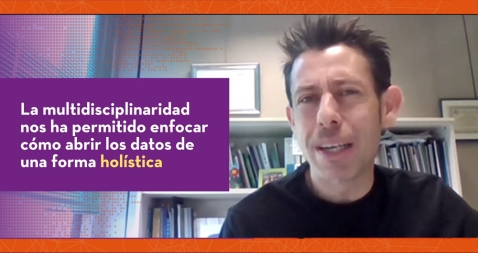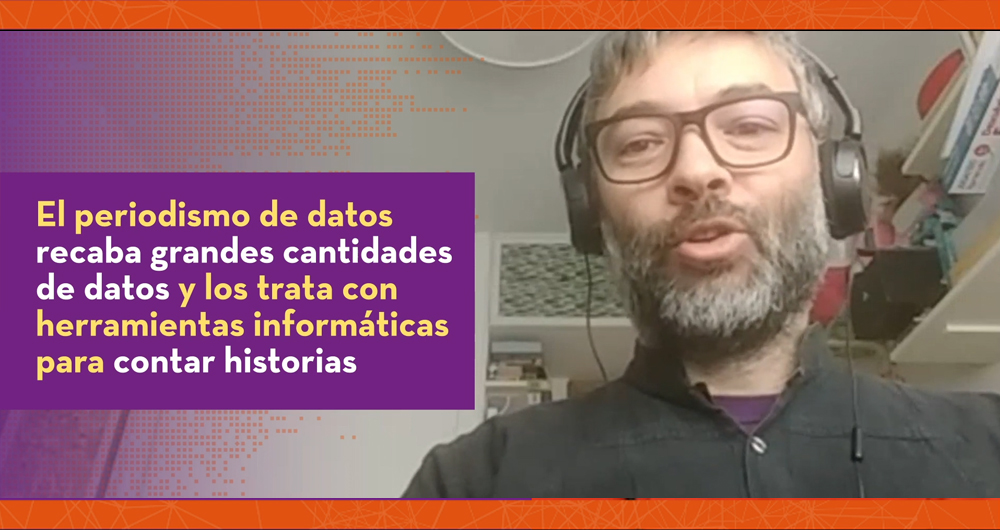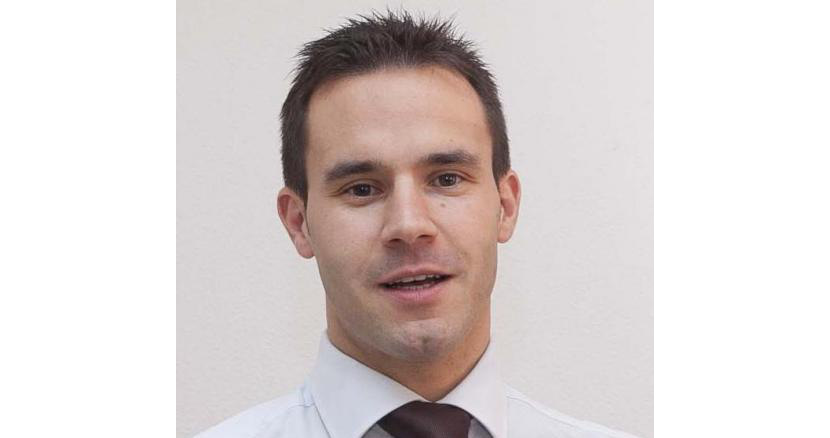Interview with Roberto Magro, coordinator of the FEMP's open data working group
Fecha: 23-06-2021
Nombre: Roberto Magro
Sector: Public sector
Organismo, Institución o Empresa: FEMP Open Data Group / Alcobendas City Council

The Spanish Federation of Municipalities and Provinces (FEMP, in Spanish acronyms) brings together various local councils, provincial councils, councils and island councils. In total, it represents more than 7,000 bodies, defending the general interests of Local Bodies and promoting cooperation.
We spoke to Roberto Magro, coordinator of the FEMP's open data working group and Head of Interactive Services at Alcobendas City Council, to talk to us about the situation of open data in local entities and the steps being taken to promote it.
Full interview:
1. Could you explain how the FEMP's open data group contributes to the openness and reuse of public information?
Since the creation of the group in 2017, we have mainly focused on the creation of two didactic guides on what open data is and what we need in a municipality to implement an open data project. In addition, we have proposed the 40 datasets that every administration should open up to facilitate the reuse of public sector information.
2. One of its lines of work has been the elaboration of the document Open Data FEMP 2019: 40 datasets to be published by Local Bodies, which aims to provide common data models that facilitate the interoperability and reuse of public sector information. Why did you choose these datasets?
The people who made up the working group are very diverse: civil servants from local councils, freelancers, the university, private companies and the association of the infomediary sector in Spain. We all started to investigate which datasets were starting to be published and which ones could be more interesting from a local administration, with a double purpose: to respond to internal needs and to respond to the needs of reusers. Thus we reached a proposal of 40 datasets with examples of what and how they are published in our administrations.
3. What is the status of this initiative and what are your plans for the future?
After a break during 2020, we have proposed different projects to be tackled by the group, in which the following actions stand out:
- Review the 40 datasets published to date: practical examples, add or remove datasets, etc.
- Define new datasets: emergency, risk catalogue, Open Cities project, etc.
- Methodological proposal on how to measure the impact of the data.
- Drawing up an ethical decalogue on the treatment and use of data.
- Carry out actions to disseminate the Guidelines in conferences, seminars, etc.
- Carry out training actions on open data (theory and practice) at political, managerial and technical level.
4. You are also Head of Interactive Services at Alcobendas City Council. Alcobendas has an open data portal with more than 200 published datasets. What is the day-to-day running of a local data initiative like? What challenges do you face and how do you solve them?
The Internet and being able to publish information in open format allows us to be very agile once we decide what data to publish.
Sometimes, from the Innovation, Digital Transformation and Economic Development Department of the City Council, we discover datasets that can be published and we talk to those responsible for the information to convince them that we can publish and disseminate the data they have. On other occasions, it is the departments themselves who come to us and ask if they can publish data on the municipal website and open data portal. Here, we always consult the Data Protection Officer, so that no legal problems arise, and with his or her approval, we publish the information.
For the last two years, we have been trying not only to publish new datasets, but also to create visualisations so that the majority of citizens can understand the data and interpret it more easily, as well as offering downloads of the data in multiple formats.
But it is not always easy to publish data; at other times we are faced with decision-makers who do not wish to publish the information or databases from which it is too costly to extract data, because of the budget involved in creating data extraction, transformation and publication processes. There is still a long way to go, but I believe that we have to be there, promoting publication, training people and raising awareness of the advantages of publishing open data for a city council.
5. Two years ago, in your article "The star dish of administrative management: an open data ration" you shared a series of reflections and recommendations that all administrations should take into account when developing an open data project. Do you think the open data situation has changed since then in our country? What strengths do you think there are? And weaknesses?
I think that in any medium or large Spanish public administration it is already known what open data is, but it is a different matter if data is published or can be published due to lack of resources.
Every month I receive messages or calls asking how to approach a project, if it is easy, what resources are needed, if I know a company that can help them. The work done by the FEMP is very important because it disseminates teamwork and all mayors receive an email with information, in this case, about open data and that they can count on the FEMP and the Network of Local Entities for Transparency and Citizen Participation to advise them.
Undoubtedly, the weak points continue to be the lack of training and resources to be able to tackle a project of this type. In small town councils, the regional councils should help to create portals where information can be published in order to overcome the shortage of material and human resources. A great deal of work is being done to support the publication and reuse of information from all small and medium-sized municipalities.
In order to respond to an open data project, every institution must reflect and answer the question of why we want to publish open data and launch them to develop a project of this type. The answer, in many cases, will be because it reinforces Transparency, Accountability or Open Government policies. In other cases, because it is a way of collaborating with citizens and companies to generate social and economic value.
Now that there is a European open data strategy and a digital agenda and AI strategy in our country, it is time to put it into action. We must believe in data and approach the governance of institutions with data.
Open data will be our allies to be able to justify all the Next Generation funds that will start to arrive this year.
I believe that all the circumstances are in place for data to be the engine that transforms our administrations, both at organisational and management level.
In order to respond to an open data project, every institution must reflect and answer the question of why we want to publish open data and launch them to develop such a project.
6. What recommendations would you give to those local or provincial bodies that are thinking of launching an open data initiative?
They should be trained, they should ask the FEMP Network, they should give an answer to the why and the open data project they want to undertake should be aligned with the institution's policies.
Last but not least, they should create a multidisciplinary group in their institution (IT, legal, innovators, staff from the economic area, environment, organisation and planning, social services, citizen services...) that are coordinated by a person who leads the team and backed by the highest governing body of a city council: the mayor's office. With open data we will be able to see what our management is like: good, bad or fair, and with the data we will be able to improve and meet the needs, not only of the administration but also of the interest groups with which we interact: citizens, companies, other institutions, etc.
Open data must respond to the social problems of our society and therefore, the sooner we tackle a project of these characteristics, the sooner we will be able to improve people's lives.














